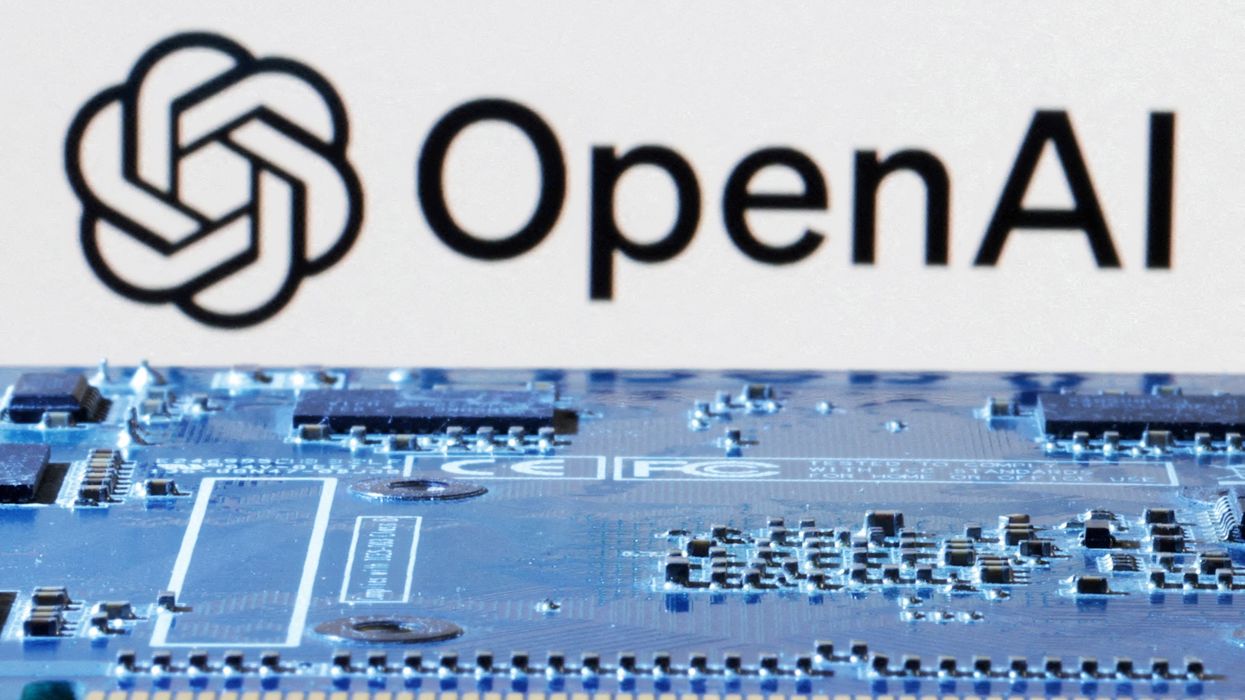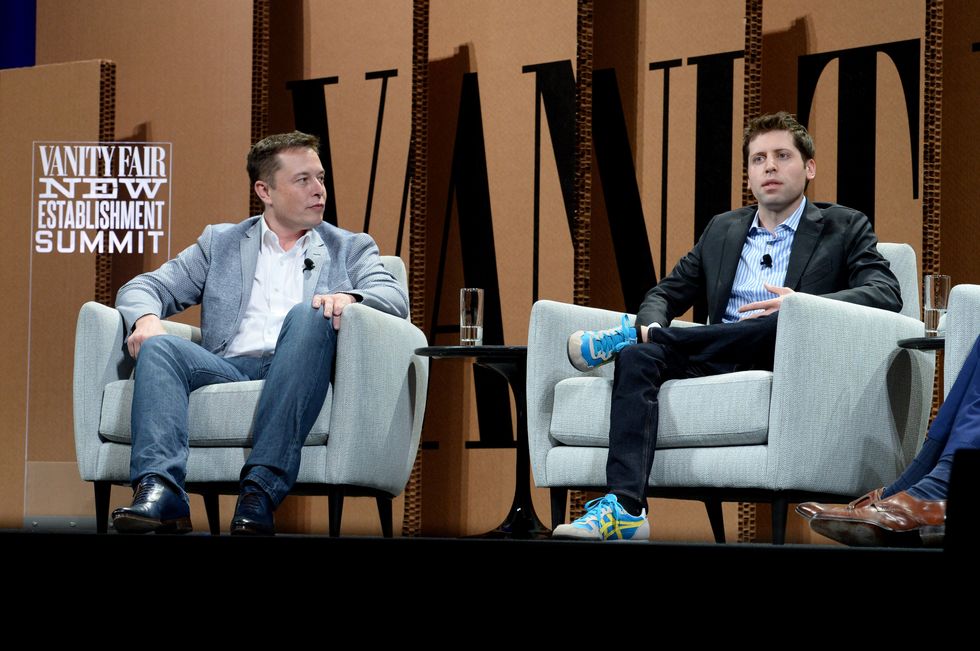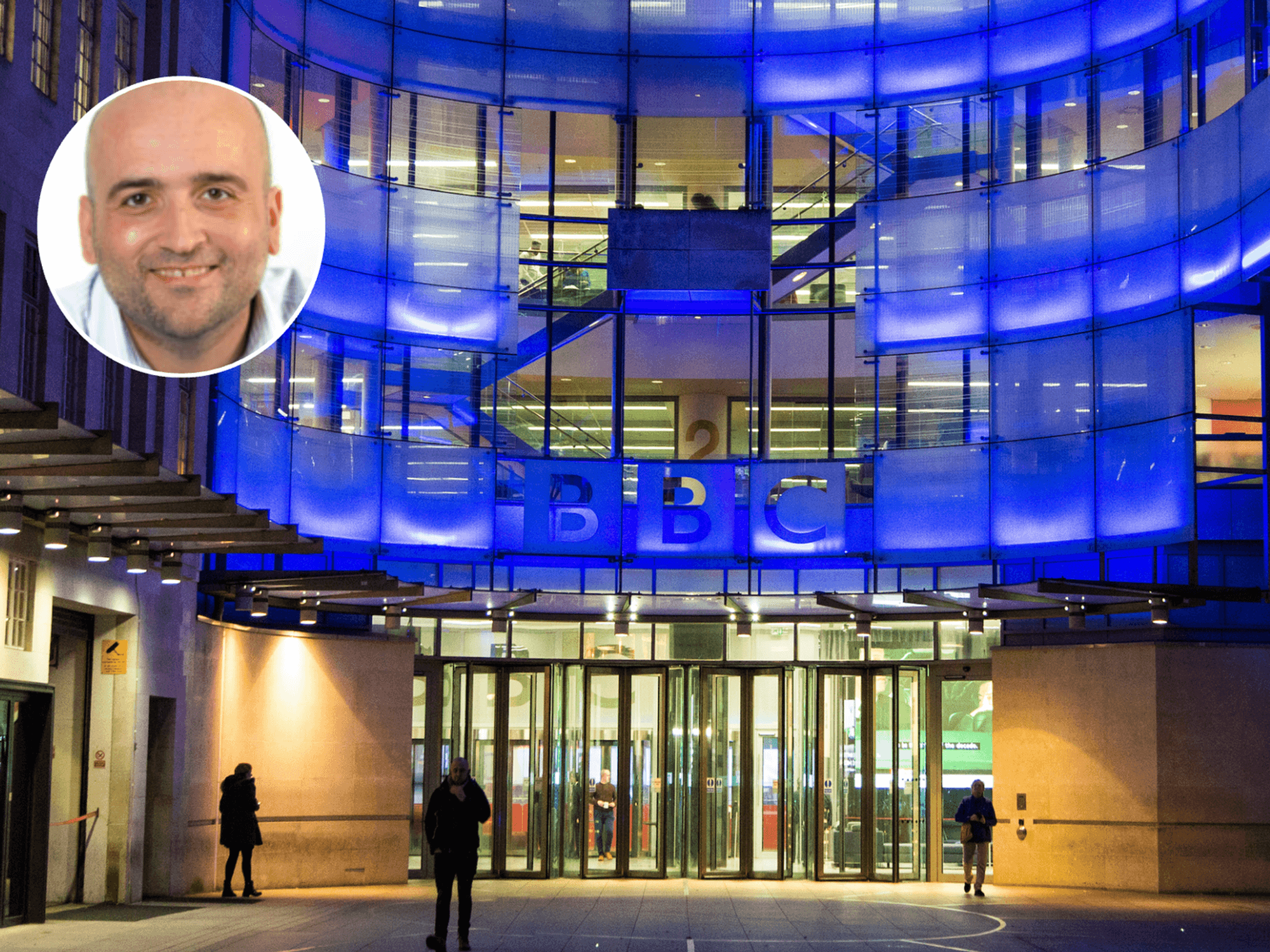Would YOU ditch Google search for something new? ChatGPT maker OpenAI could launch all-new rival in hours

OpenAI will hold an event on Monday May 13 to confirm new improvements coming to its ChatGPT AI chatbot as rumours swirl that a true competitor to Google search could be planned as a surprise reveal
|REUTERS

OpenAI will stream its latest keynote event from 5pm today
- OpenAI will hold its latest press conference today
- New updates to its ChatGPT-4 model will be announced
- But rumours point to a new search engine to rival Google
Don't Miss
Most Read
Latest
OpenAI could debut a competitor to Google's immensely popular search engine within hours. The company, once backed by SpaceX and Tesla executive Elon Musk, will hold a live stream event at 5pm BST (10am PDT / 1pm EDT) today to announce improvements to its ChatGPT system.

Tesla CEO Elon Musk pictured on-stage with OpenAI CEO Sam Altman during an event called "What Will They Think of Next? Talking About Innovation" hosted by Vanity Fair
|GETTY IMAGES
However, sources speaking to Reuters claim that a new AI-powered search engine could also be revealed — timed to inflict maximum pain on Google, which is due to hold its annual developer conference, known as Google I/O from tomorrow morning. This rival event will see announcements about Google Gemini AI, Google search, Google Maps, and Android, sources say.
ChatGPT-maker OpenAI has only confirmed that it will unveil updates to its ChatGPT-4 model, which is baked into Windows 10 and Windows 11 via Microsoft Copilot. The generative AI system, which has been banned by lawmakers in Washington DC, can be used in Microsoft Office applications, like Word and Excel, although this comes with a £19 subscription fee.
Microsoft announced plans to invest $10bn into OpenAI back in January 2023. Since then, it has integrated the Artificial Intelligence (AI) technology into some of its most popular products and software.
OpenAI CEO Sam Altman teased the upcoming event in a post on X, formerly Twitter, last week. He claims the most advanced AI model GPT-4 "feels like magic". He also quashed rumours that a successor, ChatGPT-5, would be announced during the live stream today.
OpenAI — now valued at $80 billion — is under increasing pressure to expand the number of users taking advantage of its ChatGPT system. This flagship chatbot product wowed the world with its ability to produce paragraphs of human-like written content, recipes, travel itineraries, interview questions, and software code from a short prompt.
Shortly after its release in late 2022, ChatGPT was called the fastest application to ever reach 100 million monthly active users. However, worldwide traffic to ChatGPT's website has been on a roller-coaster ride in the past year and is only now returning to its May 2023 peak, according to analytics firm Similarweb.
We’ll be streaming live on https://t.co/OcO6MLUYGH at 10AM PT Monday, May 13 to demo some ChatGPT and GPT-4 updates.
— OpenAI (@OpenAI) May 10, 2024
Giving ChatGPT the search engine-like capability of accessing real-time, accurate web information is an obvious next step, and one that the current iteration of ChatGPT struggles with, industry experts have said.
LATEST DEVELOPMENTS
- Next major Android phone update will be revealed tomorrow
- iPad Air refreshed with larger 13-inch screen and new colours
- Hackers launch 87,671 attacks EVERY day
- BT forges ahead with landline switch-off as next 84 locations revealed
That would also put OpenAI in direct competition with Google, which has announced generative AI features for its own namesake search engine, and well-funded startup Perplexity, which has gained traction through providing an AI-native search interface that shows citations in results and images as well as text in its responses.
Weaving in real-time information has not been an easy task. An earlier attempt to bring updated and real-world information into ChatGPT, called ChatGPT plugins, was retired in April.
Despite competition from Microsoft's Bing — which incorporated some functionality from ChatGPT with its latest update, and privacy-focused DuckDuckGo, Google still dominates online search. The Californian company has a marketshare of roughly 91.6% as of February 2024, according to a report from Oberlo.
Google's marketshare has not dipped below 90% since 2014. It's not only the most popular search engine on desktop, but also dominates by similar margins on tablets and smartphones worldwide.










